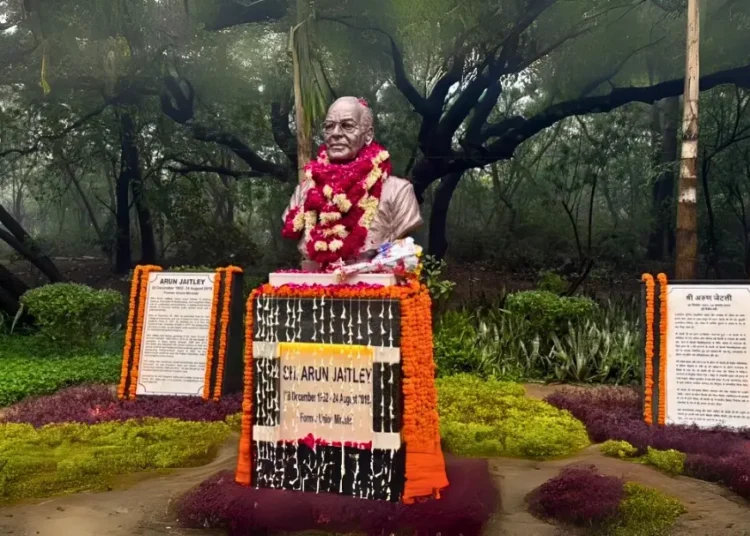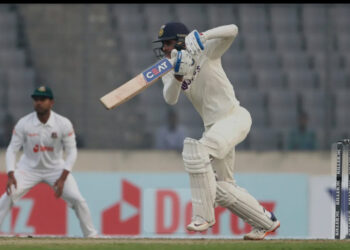Former Union minister Arun Jaitley’s reluctance to take up the post of BCCI president despite numerous pleas from BCCI office-bearers and working committee members speaks volumes about his character and his approach to cricket administration. The board even went so far as to dissolve the zone rotation policy, a significant step, all in an attempt to make room for him.
However, Jaitley, in his characteristic style, repeatedly turned down the offer. His refusal wasn’t due to a lack of ambition or an absence of desire to wield power, but because he saw himself as a “kingmaker” rather than a ruler. Jaitley’s understanding of cricket and his role within it went beyond seeking the limelight. He had a deep love for the sport, and his commitment was more about serving the game and its future than holding a formal position of power.
As a former minister and a respected figure in both politics and cricket, Jaitley understood the broader impact of the BCCI’s decisions, and he likely felt his influence was better served from behind the scenes rather than at the helm. As his family and friends gathered inside the Arun Jaitley park to celebrate his 72nd birthday on Saturday morning, the reflection of his mindset that transcends personal glory, is still spoken with utmost respect.
Jaitley saw himself as someone who could shape the future of Indian cricket without necessarily being the one in the spotlight. His preference for influence over authority, and his genuine love for the sport, helped guide crucial decisions from a position of strategic counsel, rather than a direct leadership role. This unique perspective, combined with his vast experience, made him an invaluable figure in the cricketing landscape—one who wielded power subtly but effectively.
Remembering his heydays, former acting BCCI president CK Khanna said; “His unparalleled dedication and leadership left an indelible mark on the cricketing world and on all of us who had the privilege to work with him,” he said.
Jaitley’s influence within the BCCI, particularly during the spot-fixing scandal that rocked Indian cricket in 2013, was undeniable. In those turbulent times, when the reputation of Indian cricket was on the line, it was Jaitley who became a crucial figure behind the scenes.
Despite not holding any official position within the board, his wisdom and political acumen made him the go-to person for advice and guidance, even on the most sensitive issues. When former BCCI president N. Srinivasan, at the heart of the scandal, was facing immense pressure to step down, it was Jaitley’s counsel that many in the board turned to.
Despite the delicate nature of the situation, Jaitley had the forthrightness to call a spade a spade, always advocating for what was right, irrespective of political or personal consequences. His no-nonsense attitude earned him the respect of BCCI officials, who, even if they didn’t always agree with him, recognised the value of his insight and guidance.
Such was the aura of Jaitley that even top BCCI officials could not make major decisions without consulting him. Whether it was about the future of Indian cricket, the integrity of the board, or navigating complex administrative and legal challenges, Jaitley was often the invisible hand guiding the ship. His role during those critical moments showed that leadership is not always about holding the top post, but about the influence you wield and the respect you command in times of crisis.
Former Maharashtra Cricket Association president Abhay Apte, who is also a Pune-based lawyer, has some found memories of Jatley. “Remembering Arun Jaitley ji on 72th birth anniversary, I can straight away tell you that he was an erudite lawyer, an astute politician, an excellent sports administrator and above all a great statesman,” Apte said while recollecting his meetings with Jaitley in his East of Kailash home, wherein, he solved the most complex cricket problems over one meeting.
Jaitley’s connection with cricket went far beyond administrative influence—he had a deep understanding of the game itself. Those who interacted with him often recall his insightful observations and predictions about the future of Indian cricket. One such example was his foresight regarding Virat Kohli’s leadership potential. Jaitley, with his sharp cricketing mind, predicted that Kohli would one day captain India. This was long before Kohli’s rise to prominence as one of the greatest cricketers of his generation, let alone his eventual role as captain.
Jaitley’s ability to identify talent and foresee the trajectory of players highlighted not just his political acumen, but also his genuine passion and understanding of the sport.
Jaitley’s vision for the game was not just about nurturing talent but also about steering Indian cricket through critical moments, and his contributions remain deeply etched in the history of the sport. His legacy is that of a man who, though never seeking the spotlight for himself, shaped the future of Indian cricket with a mix of foresight, strategy, and his immense love for the game. As both a leader and a supporter, Jaitley’s absence leaves a void that is unlikely to be filled—there truly won’t be another Arun Jaitley.

















Can you be more specific about the content of your article? After reading it, I still have some doubts. Hope you can help me.